US gears for rising death toll in West Coast wildfires
by Cyril Julien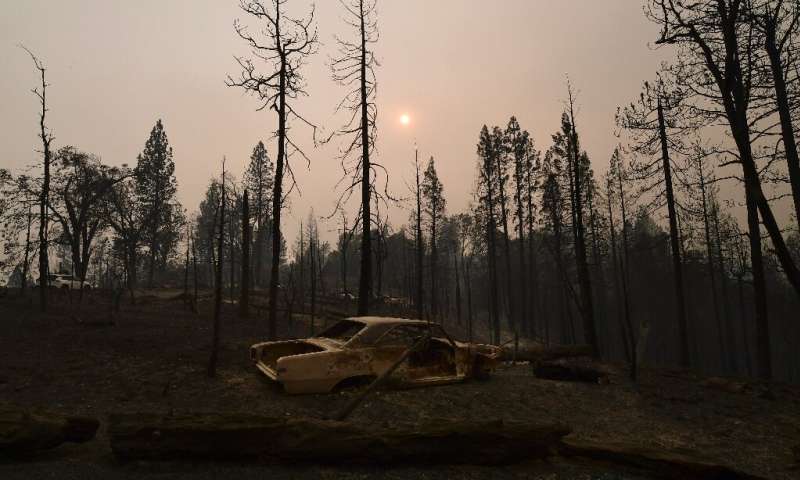
US officials girded Saturday for the possibility of mass fatalities from raging wildfires up and down the West Coast, as evacuees recounted the pain of leaving everything behind in the face of fast-moving flames.
A prediction of cooler weather offered some hope of respite in coming days, but the true scale of the destruction from dozens of massive blazes in California, Oregon and Washington states remained hard to gauge.
There were 16 deaths confirmed this week, with wide stretches of land still cut off by flames fueled by tinder-dry conditions of the kind caused by climate change.
More than 20,000 firefighters are battling the blazes.
"We're preparing for a mass fatality incident based on what we know and the number of structures that have been lost," warned Andrew Phelps, director of the office of emergency management in Oregon, on Friday.
"We anticipate that number (of deaths) may potentially go up as we get back into areas that have been ravaged by flame and obviously, smoke begins to clear," warned California governor Gavin Newsom, as he visited a scorched forest near the raging North Complex Fire.
Ten people have been confirmed dead from that blaze in Butte County, which was driven at unprecedented pace toward the city of Oroville earlier in the week by strong, dry winds and soaring temperatures.
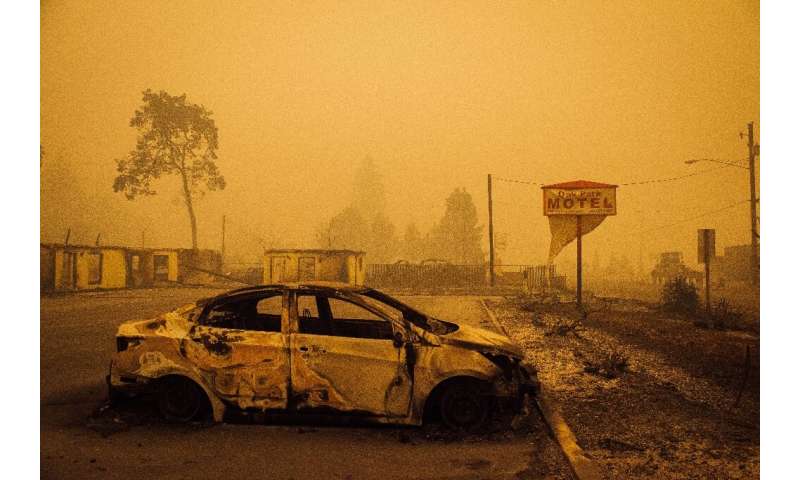
But Newsom said the weather "is beginning to cooperate," with winds settling down and some rain forecast.
In Oregon, where one million acres (400,000 hectares) have burned and three people are reported dead with dozens still unaccounted for, governor Kate Brown also expressed hope a corner had been turned.
More than 40,000 Oregonians have fled their homes so far, with around half a million under evacuation warnings, Brown told a press conference—clarifying previous higher figures given by state officials.
"The weather system fueling these fires over the past few days has finally broken down," she said.
"We anticipate cooler air and moisture coming in the next few days, which is really good news."
In Portland, thick, choking smoke blanketed the downtown area Saturday morning, as local meteorologists said the city now ranks as having the worst air quality the world.
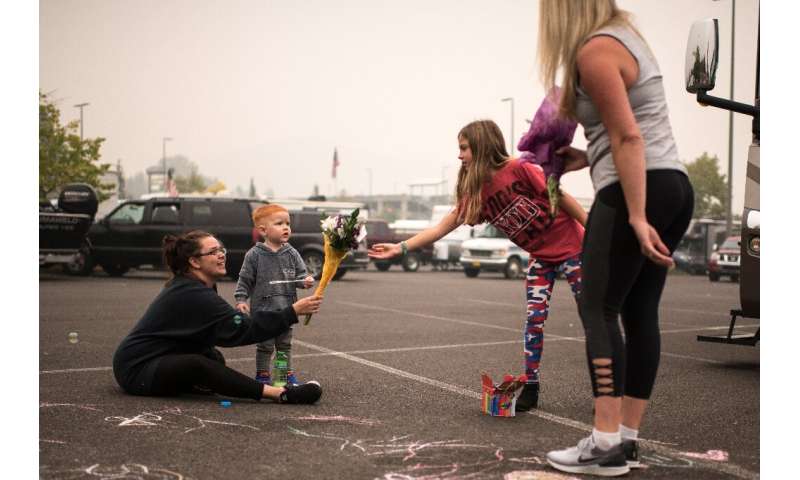
"It is as if I had smoked 100 cigarettes. I've never seen this but we try to stay positive as conditions are getting better," said a 37-year-old man who gave his name only as Jessie.
Elsewhere in Oregon, depending on the severity of a given place, evacuation instructions range from gather valuables and essential documents to get out right away.
"It's like something in a movie. You don't expect it to actually happen to you, but when it's happening to you it's just scary," said Carrie Clarke, 25, who was evacuated from the Oregon town of Molalla and receiving food and other aid in a parking lot.
She said she and others wondered what they would take if they go back and recover things—in her case, it was mementos of her children from the time they were born.
"If that burns, I have nothing. That's not something you can replace," she told AFP.
Even as the weather forecast offered hope, Newsom painted a grim picture of California as the canary in the climate change coal mine.
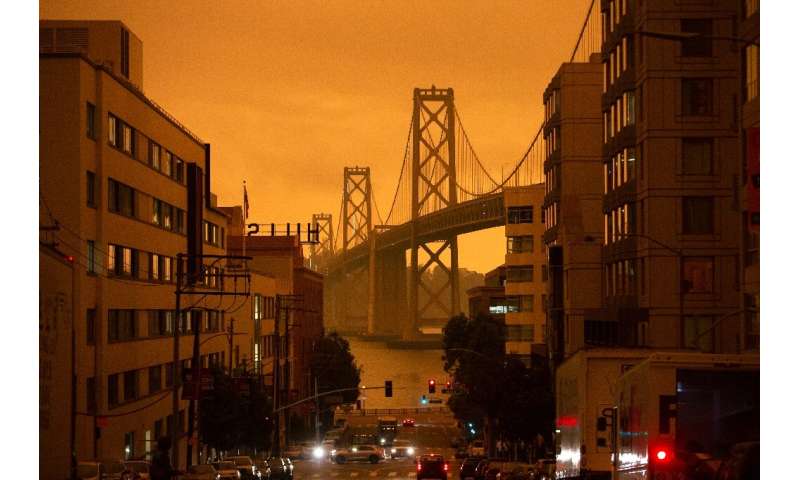
"I'm a little bit exhausted that we have to continue to debate this issue," he said in televised comments as he toured the damage. "This is a climate damn emergency. This is real, and it's happening.
"This is the perfect storm."
He added: "California, folks, is America fast-forward. What we're experiencing right here is coming to communities all across the United States of America unless we get our act together on climate change, unless we disabuse ourselves of all the BS that's been spewed by a very small group of people."
'Complete loss'
The August Complex Fire this week became by far the biggest recorded blaze in Californian history, ripping through 746,000 acres of dry vegetation in the state's north, as multiple fires combined.
But it is just one of around 100 large fires on the West Coast, and other rapidly growing blazes closer to populated areas have proven deadlier.
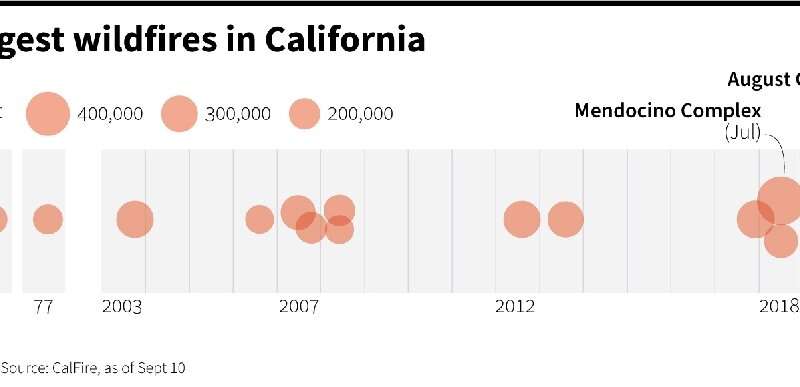
"We are at a complete loss for words right now," Bobbie Zedaker told the San Francisco Chronicle, after DNA tests proved her missing 16-year-old nephew was among those killed by the North Complex Fire.
Two more people were killed near the rural community of Happy Camp, a CalFire spokeswoman told AFP Friday.
Huge wildfires are becoming more common, with the World Meteorological Organization saying the five years to 2019 were unprecedented for fires, especially in Europe and North America.
Climate change amplifies droughts which dry out regions, creating ideal conditions for wildfires to spread out of control and inflict huge material and environmental damage.
California has already seen more than 3.1 million acres burn this year—an annual record, approximately the size of Connecticut—with nearly four months of fire season still to come.
© 2020 AFP